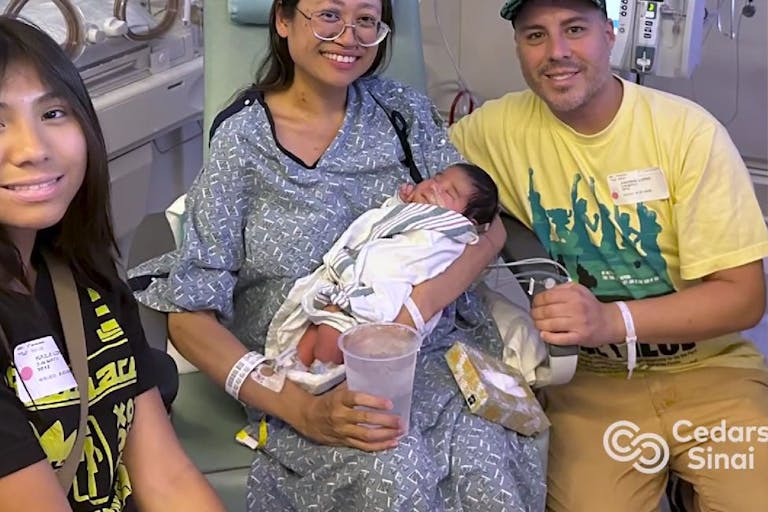
Full term 'miracle' baby born after 'unprecedented' ectopic pregnancy
Bridget Sielicki
·
“Boytoxing”: Pop culture trends show that casual sex hurts women
Back in 2007, when I was a 21-year-old junior at Ohio University, I picked up a copy of Unprotected: A Campus Psychiatrist Reveals How Political Correctness in Her Profession Endangers Every Student, written by a doctor calling herself “Anonymous, MD.” Columnist Mona Charen described the book as “a hard slap at the sexual free-for-all that prevails on American campuses and throughout American life.”
As a college student, it struck a personal chord with me. I found it fascinating—and heartbreakingly accurate. I e-mailed the author, who turned out to be Miriam Grossman, campus psychiatrist at UCLA. A year later, I became her researcher for her second book.
Last week, she e-mailed me: “Look at my Facebook page. Have you seen this new term, ‘boytox’?”
As Dr. Grossman wrote on Facebook:
Fascinating: a new word has appeared acknowledging the toxic effects of casual sex for girls.
From UrbanDictionary.com:
“Boytox”: When a woman gives up dating/cavorting with the opposite sex for a temporary period in an attempt to enhance her overall well-being, including her mental health and her physical appearance. As a result, she may glow or look younger from lack of frowning and crying as if she had a Botox injection.
“Ever since she went on that boytox, she’s seemed so happy. Positively glowing!”
…
“That boytox did wonders for her mental health.”
The author doesn’t define “cavorting,” but I think we can read between the lines. She means sex. And she knows something that Planned Parenthood, the American Psychological Association, and campus health centers don’t: casual sex can be hazardous to a woman’s mental health and self-esteem.
Dr. Grossman has seen the damage firsthand. At UCLA, she treated hundreds of patients – mostly women – who came in requesting Zoloft or Xanax to cope with the fallout from broken relationships, STIs, and, yes, abortions. Some had trouble even acknowledging the source of their pain.
Take “Heather,” a freshman who had a “friend with benefits.” She told Dr. Grossman, “I want to spend more time with him. But he says no, because if we do, then in his opinion we’d have a relationship. And I’m confused, because it seems like I don’t get the ‘friend’ part, but he still gets the ‘benefits.’”
It took psychotherapy for Heather to realize that this relationship was degrading. She felt used, and her needs were being neglected. She didn’t need antidepressants – she needed a boytox.
Article continues below
Dear Reader,
Have you ever wanted to share the miracle of human development with little ones? Live Action is proud to present the "Baby Olivia" board book, which presents the content of Live Action's "Baby Olivia" fetal development video in a fun, new format. It's perfect for helping little minds understand the complex and beautiful process of human development in the womb.
Receive our brand new Baby Olivia board book when you give a one-time gift of $30 or more (or begin a new monthly gift of $15 or more).
“Usually we get warnings about the risks to our health and well-being from the medical profession,” Dr. Grossman says. “The dangers of trans fats, tanning salons, red meat, cell phones…the list is endless.”
In these cases, we’re not afraid to get judgmental and even a little hyperbolic with health warnings. Cosmopolitan pushes its “safe sun” campaign relentlessly, featuring horror stories of twenty-something melanoma victims. Doctors don’t think twice about hounding smokers to quit.
But when it comes to casual sex, it’s reversed.
“The dangers of casual sex for women have been noticed by the culture, in an organic way,” Dr. Grossman says. “Not through double blind studies that cost millions and take years to do, but through everyday experience and common sense. The culture knows it intuitively.” (“Boytoxing” is far from the only example. Being a ’90s kid, the song “Insensitive” and its lovelorn lyrics popped into my head.)
“If my profession weren’t so PC, the term would be included in the newest version of the DSM, out soon, with all sorts of new diagnoses,” Dr. Grossman says.
Instead, there is tacit approval of promiscuity and experimentation of all kinds with male and female “partners.”
“Central is the dogma that regular sexual behavior – with or without a committed relationship – is necessary and healthy, and can be free of consequences, as long as it’s ‘protected,’” Dr. Grossman says. “But believing doesn’t make it so. On my campus, sexually active students were much more likely to seek counseling. Almost daily, I prescribed medication to help students, mostly women, cope with loss and heartbreak.”
How sad is it that a nameless poster on Urban Dictionary can pinpoint a problem the medical community won’t acknowledge?
Live Action News is pro-life news and commentary from a pro-life perspective.
Contact editor@liveaction.org for questions, corrections, or if you are seeking permission to reprint any Live Action News content.
Guest Articles: To submit a guest article to Live Action News, email editor@liveaction.org with an attached Word document of 800-1000 words. Please also attach any photos relevant to your submission if applicable. If your submission is accepted for publication, you will be notified within three weeks. Guest articles are not compensated (see our Open License Agreement). Thank you for your interest in Live Action News!

Bridget Sielicki
·
Issues
Nancy Flanders
·
Politics
Bridget Sielicki
·
Issues
Sheena Rodriguez
·
Guest Column
Right to Life UK
·
Issues
Bridget Sielicki
·
Human Rights
Ashley Herzog
·
Human Rights
Ashley Herzog
·
Human Rights
Ashley Herzog
·
Analysis
Ashley Herzog
·
Opinion
Ashley Herzog
·